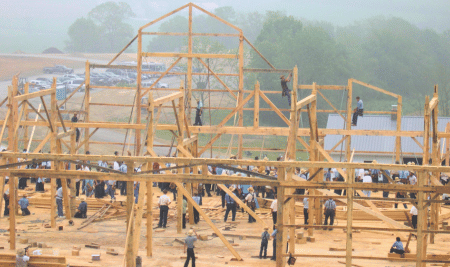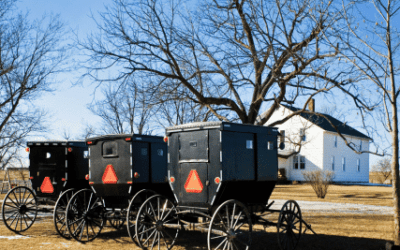I conducted email interviews with two esteemed professors with the intention to learn about outside perspectives of Wisconsin v. Yoder. One (Professor A) is an expert in international law and religion and has many famous publications and conferences. The other (Professor B) is an expert in women and politics, as well as religion and politics. Both of these women are extremely inspiring and show the potential all women have to succeed professionally. However, when I contacted them, I received answers that I didn’t expect.
When I asked Professor A if she was aware of Wisconsin v. Yoder, she said, “Wisconsin v. Yoder is one of the Supreme Court’s most important decisions on the free exercise clause of the First Amendment.”
While this response might be stating a fact, there’s more to the answer. Many people say that Yoder ‘simply has to do with freedom of speech!’ This could be true for parents, but it isn’t for children. Yoder took away Amish children’s right to education, and consequently all children’s. Many people, including the Amish Heritage Foundation (AHF), argue that a child’s right to learn is more important than a parent’s religious rights.
I then asked Professor A, “Do you think Wisconsin v. Yoder can be overturned? How do we go about doing so?”
Her response was the following:
“The federal Constitution contains no “right to education.” However, many state constitutions do enumerate this right. Advocates of the right to education would be wise to enforce this right through litigation.
By highlighting the importance of the right and that the state is not enforcing it, advocates can use litigation to spread awareness about the cause and galvanize the public to support it. Litigation is about much more than the individual litigants and their case.”
I found her last sentence particularly interesting. While for some cases this could be true, for Wisconsin v. Yoder it certainly wasn’t. Yoder was made solely about Amish parents, nothing about the average American citizen––although it would affect every person in the future.
According to attorney and professor Marci Hamilton, Yoder would not be decided in favor of the Amish parents today. But because it passed 50 years ago, it is a problem. It can be, and has been, used as a precedent for other cases. We must overturn Yoder and make an adequate education an explicit federal right for the entire country.
When I asked Professor B about overturning Wisconsin v. Yoder and if it would improve the lives of Amish women, I received this response:
“Is there a movement afoot that would do that? My guess, if compulsory education past 8th grade was legal, it might have a positive effect on women’s rights? It’s hard to say because my guess is that high school experience in and of itself may not lead to more progressive views on women’s rights overall.
My guess is that devout, conservative theological adherents would probably not have their more traditional views of gender roles, for example, impacted by having a high school education.”
I do agree with the sentiment that Amish culture (specifically rights for Amish women) will not be fundamentally changed by Amish teenagers attending high school. However, I think simply having the opportunity for them to go to school is a way to see the potential in leaving the practicing/religious community.
[Editor’s Note: The critical point that needs to be addressed in exchanges such as this is on the adequacy/quality of the education, in conjunction with the setting (e.g., private, religious, public, etc.). To assume that an Amish 8th grade education is the same as, or better than, eight years of public school is a serious mistake.]
I found it ironic that this particular college professor said that education would not change religious women’s rights. Education allowed the professors I interviewed to get to their level of achievement. Women without an education do not get to go to law school, give conferences, speak at the United Nations, etc. Opportunity is the key to success! We need to give Amish girls the chance to learn, and to become the successes we look up to.
To education,
K.F.
Summer Intern, Amish Heritage Foundation



